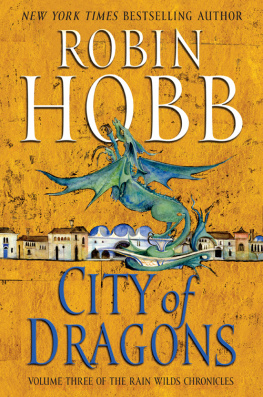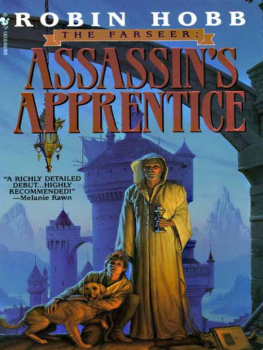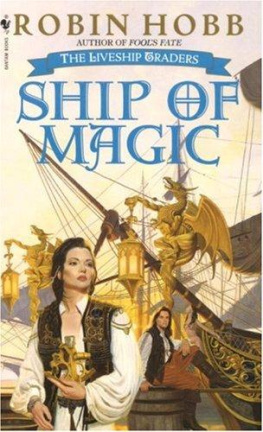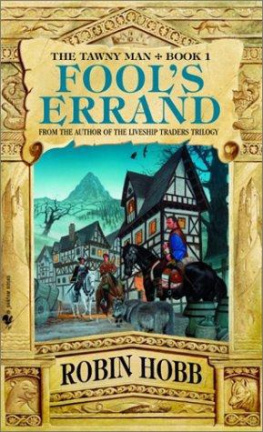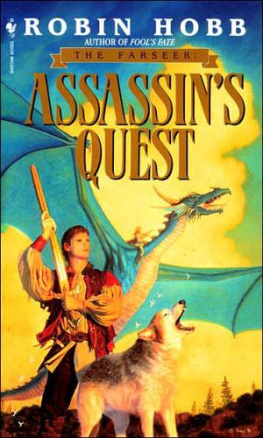Robin Hobb & Megan Lindholm
THE INHERITANCE
And Other Stories
Dedication
For Fred, in our fortyish year
Behind every story a writer writes, there is the story of how the writer came to the tale. In the introduction to each story in this collection, I hope to share a bit of what went on in my mind and in my life that prompted each story.
It is also true that behind every book, there is a story. This one is no exception.
I began my writing career when I was eighteen years old, as an aspiring childrens author. I was newly married and living in a small village called Chiniak on Kodiak Island. The population was small, the local business was a combination gas station and convenience store that kept fitful hours, and initially there was little for me to do other than keep my small house trailer tidy and take long walks on the beach with my dog, Stupid. I had long known that I wanted to be a writer, so I borrowed a small portable electric typewriter from my sister-in-law, bought a ream of paper and some carbon papers, large brown envelopes for my SASEs (self-addressed stamped envelopes for rejection slips!), and a copy of Writers Market. I was soon submitting short works to various childrens magazines such as Humpty Dumpty, Jack and Jill, and Highlights for Children, in addition to many tiny magazines with very small circulations. In the beginning, rejection slips far outnumbered sales, but with each contact with the editorial world, I was learning.
By the time ten years had passed, I had realized that writing for children was hard work, much harder than simple words and linear plots had seemed at first glance. Trial and error had taught me that there was a corollary to the famous Write what you know advice. That was, Write what you love reading. I had long been passionate about fantasy and science fiction, but equally daunted at the prospect of trying to compare my work with the tales from the writers I lionized. But by my midtwenties, I was venturing out with submissions to fanzines, the small-press homemade magazines of the genre. Some were little more than mimeographed or Xeroxed pamphlets while others had ventured into glossy pages and illustrations. They were my proving ground as a writer, and I will forever owe a debt to magazines such as Space and Time, and editors such as Gordon Linzner.
When I began writing SF and fantasy for adults, I initially wrote as M. Lindholm. I was very happy with that sole initial in front of my surname. In 1978, I submitted a story to Jessica Amanda Salmonson that I hoped she would consider for her small-press magazine Fantasy and Terror. To my shocked delight, she wrote back saying that she would like to use it for her forthcoming feminist fantasy anthology, to be entitled Amazons! But she felt strongly that women writers needed to declare themselves as female. She urged me to put a name rather than an initial in my byline. I wrote back to her that Id never been fond of my given name, Margaret, and that the nicknames such as Maggie, Peggy, Marge, and so on had never really felt like my own, either. I added, almost as an afterthought, that Megan was not so bad.
Months later, when the book came out, I was a bit astounded to see that I had a new byline. Megan Lindholm it was. I confess to having mixed feelings about it, then and still. A year or two later, when the first Ki and Vandien book, Harpys Flight, sold to Ace Books, I realized that without my intending to Id made an important decision. Since the story in Harpys Flight featured the same characters as Bones for Duluth, the story in Amazons!, I would have to use the same byline. Without giving it much thought, Id become Megan Lindholm.
And Megan Lindholm I would remain for many years.
Leap forward in time yet another decade and a bit more. It was a time of change in my life. I had recently switched to a new US publisher, my career-shifting agent Patrick Delahunt had passed me on to a new agent, Ralph Vicinanza, and I was writing a story of a type Id never attempted before. This was to be a big fantasy, on an epic scale, and written from the first-person point of view of a young man. I was writing in a style that I felt was completely different from any Id ever used before. Perhaps it was a time to make a complete break with the past. The idea of changing my pseudonym greatly appealed to me. Although I remained very fond and proud of my works as Megan Lindholm, the drama of adopting a secret identity was irresistible. I jumped at the chance to become Robin Hobb.
My editors, my agent, and I all agreed that the change presented an opportunity for me to break out of my Megan Lindholm voice and tell a big compelling story in a very lively way, one that I hoped would reach new readers. I hadnt realized that I had begun to feel bound by what readers might expect of a Megan Lindholm book until I stepped away from that name. I wrote with a depth of feeling that I didnt usually indulge. When Assassins Apprentice by Robin Hobb was first published, I spent weeks with my nerves in a knot, wondering how this new series by a new author would be received.
The results were beyond my wildest hopes. I will never know how much the name change had to do with the success of Assassins Apprentice and the other Hobb books that followed it. I dont think theres a way to quantify that. But it felt absolutely wonderful to have reached a wider readership. And for several years, I played my cards very close to my chest, concealing that Megan Lindholm and Robin Hobb were one and the same. I attended conventions as Megan Lindholm, and while I was there, I did not speak about my work as Hobb. I did not do any readings or signings for the initial Farseer books.
Beyond my agent and publishers, only two people knew the secret. One was Steven Brust, my collaborator on The Gypsy. I think Steve enjoyed keeping the secret, and he did it very well, for which I will always be grateful. The other person was Duane Wilkins of University Book Store, Seattle. Id known Duane for years at that point. Hed been instrumental in helping my career as Megan Lindholm, supporting me with signings and readings as he did many, many fledgling SF and fantasy writers in the Seattle area. One night I received a call from him. He mentioned he hadnt seen me in a while, and we talked about various forthcoming books and what he thought of them. Then he brought up Assassins Apprentice. It was very gratifying to hear him say nice things about the book I couldnt openly acknowledge as mine. But then he proceeded to say that he could tell it wasnt a first effort by any writer. And that he had noticed some stylistic resemblances. I kept my mouth shut. But then he asked me, directly, and there is no lying to old friends.
And Duane, too, kept the secret intact for me.
Of course, the information eventually leaked out, in drips and drops, and finally I did a Locus interview with Charles Brown in which I admitted that yes, Robin Hobb and Megan Lindholm were both my pseudonyms.
But to this day, they remain separate writers in my mind. They may use the same battered keyboard, the one with the letters worn off the buttons. They share office supplies and an assistant, and even do very similar online updates. But they are not the same author, but rather two writers with different styles, issues, and choices of tale. I think each writer continues to attract a different readership, though some readers tell me they enjoy stories by both writers. Even today, when I get a story idea, I immediately know if it belongs to Lindholm or Hobb, and the story is written accordingly. Robin tends to hog the word processor with her big books, but Megan has continued to write and publish shorter works.

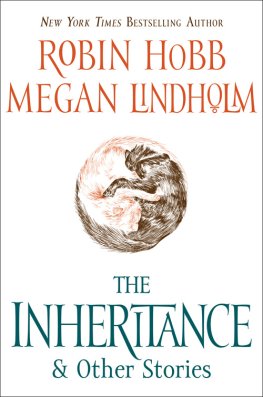
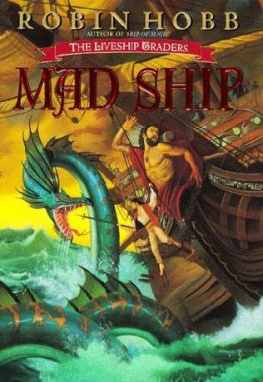
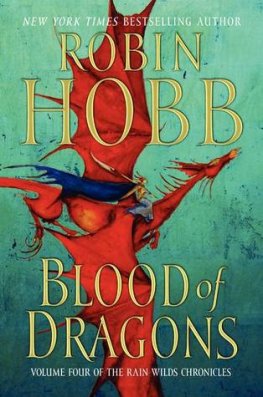
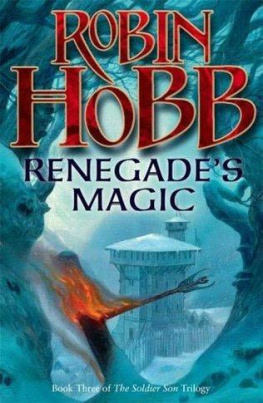
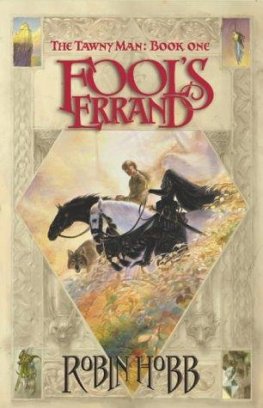
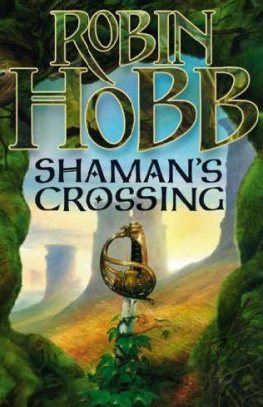

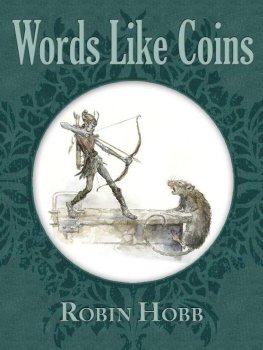
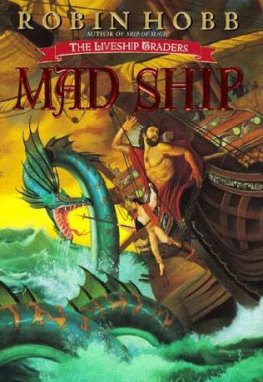
![Robin Hobb [Robin Hobb] - Fool’s Quest](/uploads/posts/book/254026/thumbs/robin-hobb-robin-hobb-fool-s-quest.jpg)
